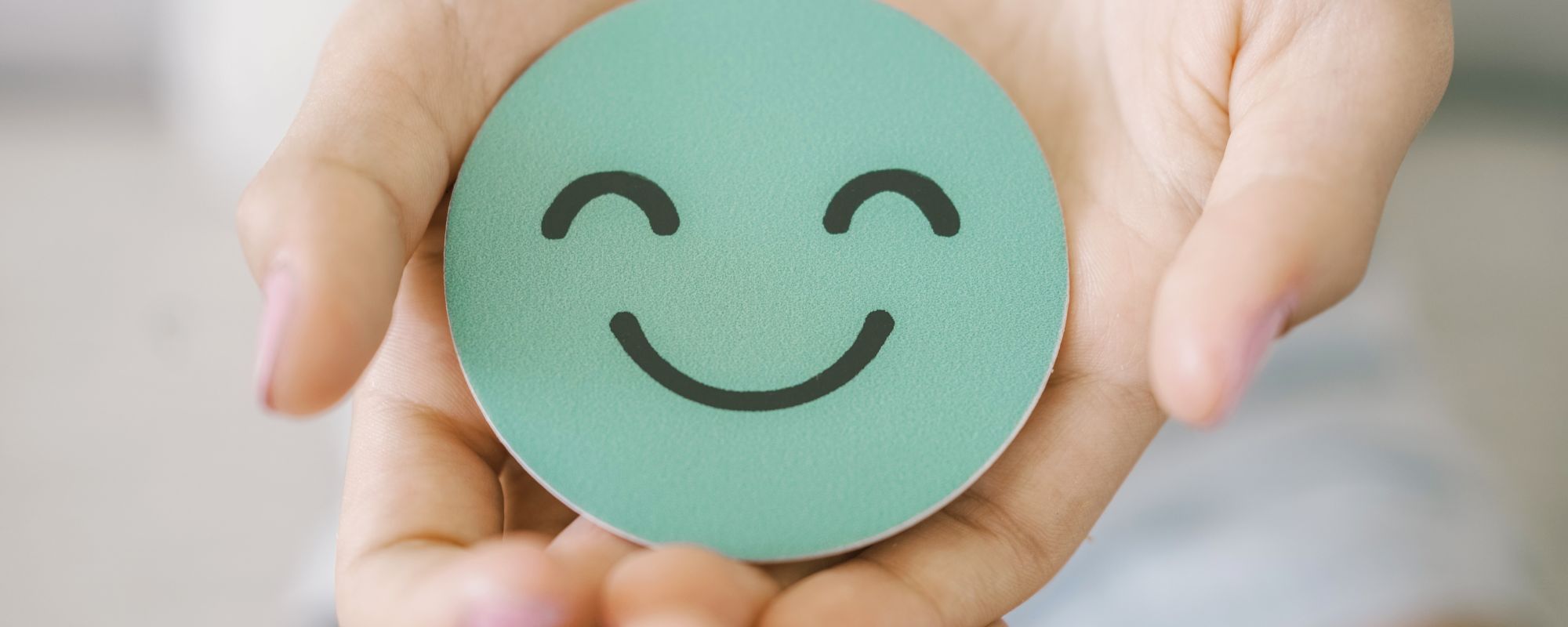Deciding to seek help for mental health concerns is a huge, admirable step, but one that isn’t always evident from the outset. How do you know if you need treatment?
Maybe you’ve been feeling inordinately sad, struggling to manage stress, feeling overly anxious, or finding yourself withdrawing from activities and relationships that mean so much to you. Your focus at work or school may be diminished, and your mood and energy just won’t lift — the feelings won’t pass — even with time.
Sometimes, those feelings can worsen to a degree where they begin to impact every aspect of your life. You might find it harder to keep up with responsibilities, take care of yourself, or even start abusing substances to cope with the pain. Studies have shown that 46% of people with a mental health condition are at risk of suicide, according to the National Alliance on Mental Illness (NAMI).
In those moments, the most important thing is creating a safe space to heal and recover, without distractions, free of triggers, and filled with the support you need, where you can devote your full focus on your mental health. Making the commitment to seeking help at an inpatient mental health clinic can fulfill this for you, but how does residential mental health treatment meet you where you’re at? Keep reading to learn more.
What Is Inpatient Mental Health Treatment?
Mental health inpatient treatment is the most intensive and structured form of care, enabling you to stay for a set period at an inpatient mental health clinic. It’s ideal for people whose mental health has begun to interfere with their ability to live independently, or if they pose a risk of harming themselves or others.
Others simply need residential mental health treatment because they lack a healthy support network or live in an unsupportive home that can exacerbate their symptoms. The best inpatient mental health facilities provide a completely stable, sober environment away from triggers and substances, where you can devote your full, unfettered focus to addressing your mental health.
It’s natural to feel intimidated or nervous to enter a mental health facility and be unsure of what’s involved; in new surroundings, to feel you’ll be left alone and isolated. Here’s what you can expect during an inpatient stay:
- On-site accommodations: Inpatient asks you to live at the mental health clinic full-time, an opportunity to step away and focus entirely on your recovery. Here, you’ll likely share a room with another peer in recovery — an opportunity to connect, bond, and feel less isolated.
- A structured daily routine: Inpatient mental illness treatment is immersive and intensive. Your days will be scheduled around individual and group therapy sessions for several hours a day, seven days a week. There’s also downtime for recreation and field trips out of the facility on select occasions, as well as specific visitation times.
- Shared mealtimes: During residential mental health treatment, meals are served at set times each day, with all guests eating together.
- Continual care: There’s round-the-clock support and supervision whenever you need it at a mental health facility. Staff members are always available with regular check-ins throughout the day and night. While this level of monitoring might take some getting used to, it’s there to help you feel secure and cared for outside of therapy hours.
Looking for quality treatment for substance abuse and mental health that’s also affordable? Aliya Health Group's treatment facilities accept most major insurance providers. Get a free insurance benefits check now!
Check Your CoverageMental Health Disorders Explained
Mental illness touches the lives of millions of people every day, affecting at least one in five — 20% — of adults in the U.S. One in 20, notes NAMI, experiences a serious mental illness.
Good mental health forms the foundation for our well-being, shaping how we think, feel, behave, relate to others, and contribute to the world around us. But mental illness can take shape in anyone, at any age, for a number of reasons.
“Mental illness is nothing to be ashamed of. It is a medical problem, just like heart disease or diabetes,” says the American Psychiatric Association. And mental health disorders are treatable at the best inpatient mental health facilities:
Anxiety Disorders
There are many different mental illnesses, but anxiety disorders are the most common. Everyone experiences occasional anxiety once in a while, but it can become a diagnosable disorder when it manifests as a constant state of high alert that makes it difficult to function at work or school, a deep-seated fear of social situations, or as sudden panic attacks. According to the Anxiety & Depression Association of America (ADAA), they affect over 19% of the entire population, or 40 million adults, each year.
The good news is that inpatient anxiety treatment is effective, one reason why it’s sought out. The ADAA notes that people with an anxiety disorder are three to five times more likely to see a doctor and six times more likely to seek help from a mental health clinic than those without an anxiety disorder. Sessions with your therapist gradually work to understand the root causes of anxiety and, through approaches like exposure therapy, confront the situations and places that trigger fear to help minimize avoiding them.
Depressive Disorders
Depression affects about 5% of adults across the globe, where feelings of extreme sadness can lead to hopelessness and a loss of interest or joy in the things you once enjoyed. “(Depression) can affect all aspects of life, including relationships with family, friends, and community,” states the World Health Organization (WHO). “It can result from or lead to problems at school and at work.”
Inpatient depression treatment can involve a number of different therapies to address severe depressive disorders like Major Depressive Disorder (MDD), Seasonal Affective Disorder (SAD), or Persistent Depressive Disorder (PDD). According to the WHO, this can include anything from behavioral activation to Cognitive Behavioral Therapy (CBT), individual counseling to problem-solving therapy. The goal is to help you find hope, purpose, and meaning in life that depression has temporarily masked.
Trauma and PTSD
Experiencing a single traumatic event can lead to the eventual development of a trauma disorder. Disturbing, vivid memories, flashbacks, nightmares, fear, and anxiety are common symptoms as someone relives the traumatizing event repeatedly. Common to Armed Forces veterans having spent time in combat is Post-Traumatic Stress Disorder (PTSD), which affects nearly 4% of the population.
However, according to the WHO, up to 40% of people with PTSD recover within the first year after beginning treatment. Like anxiety, exposure therapy remains a valuable part of inpatient PTSD treatment, where therapies like eye movement desensitization and reprocessing (EMDR) help trauma sufferers recall repressed and past traumatic memories in a safe and supportive space.
Personality Disorders
Personality disorders are distinguished by deeply ingrained, inflexible patterns of thinking and acting that can significantly impair one’s ability to regulate their emotions and maintain stable relationships. This can lead to a distorted self-image, an intense fear of abandonment, and impulsive behaviors. Of the 10 official personality disorders, which affect 9% of adults in the U.S., bipolar and borderline personality disorders are two of the most well-known.
Because personality disorders can be difficult to treat due to many sufferers being in denial of their condition, psychotherapy — like Dialectical Behavioral Therapy, or DBT — is indispensable in exploring the underlying patterns and distress beneath a personality disorder.
Get confidential help from our addiction and mental health treatment facilities located across the United States. Call to join one of our quality programs today!
Speak With Our Admissions TeamThe Best Inpatient Mental Health Treatment Explained
What happens during inpatient treatment? From the moment you enter the doors of a mental health clinic, there’s a structured, intentional path that’s followed for you to get the most out of mental illness treatment. The goal is to see you through all the essential steps, from start to finish, so you get the most out of rehab with a renewed sense of self. Here’s what to expect:
Initial Mental Health Assessment
The first step in any mental health treatment program is an intake process where the staff gets a better understanding of you, your issues, and your needs. Here, you’ll meet with a member of the clinical team who will listen to your story and ask you more about yourself, your symptoms, your day-to-day challenges, your family history of mental illness, and any corresponding substance abuse issues you might be dealing with.
Individualized Treatment Plan
The reason the team needs a 360-degree picture of you is that they work to collaborate, with your guidance, a treatment plan that’s uniquely tailored and mapped out for you. Your plan will clearly outline the entire treatment trajectory from start to finish. It’ll include the mixture of therapies you’ll be enrolled in and your corresponding daily schedule — in general, you’ll attend therapy several hours a day, seven days a week, at an inpatient mental health clinic.
Your plan might include specific goals or markers. Your therapist may want to see symptom reduction by a certain date or adjust your schedule depending on the progress you make as your needs evolve throughout your stay.
Evidence-based Psychotherapy
According to the American Psychiatric Association, about 75% of people who pursue psychotherapy benefit from it. The best inpatient mental health facilities will offer a mix of behavioral therapies that can range from individual talk therapy with your counselor to a group setting with other peers in recovery.
CBT is one therapy you may find yourself participating in. It works on a model of reframing your mental narrative, with the understanding that negative thoughts influence negative feelings and negative behaviors, and vice versa. By enabling you to challenge those beliefs, you can adopt a more positive, self-affirming perspective to rise up out of depressive moments that arise from anxiety, bipolar disorder, and other conditions. Likewise, DBT is another option if you struggle with a personality disorder since it works to help people better manage their emotions.
Holistic Therapy
Think of holistic therapy as a complement to psychotherapy. While the latter addresses the mind, holistic (which means “whole”) therapies support the valuable mind-body-spirit connection within all of us. You might try yoga, tai chi, mindfulness meditation, or expressive arts therapy, each one with the same focus in mind — to help reconnect with yourself when trauma or depression has clouded your self-esteem, to tap into a sense of inner harmony that’s been buried by anxiety.
Most of all, any one of these holistic therapies is a new, healthy habit you can carry with you long after treatment ends.
What Happens After Inpatient Mental Health Treatment?
Residential mental health treatment is ideally the first phase of mental health recovery. Once you’ve made progress in an inpatient setting, it becomes time to move on to other, more flexible types of therapy, an indicator that you’re taking the proactive steps to better your mental health and reclaim your independence.
Outpatient Mental Health Treatment
One of the most important parts of inpatient mental illness treatment is that it’s designed to help you segue into other levels of care. Most people who successfully complete inpatient therapy move on to standard outpatient treatment, enabling you to attend therapy during the day and return home each evening.
There are also two other forms of treatment that are inpatient and outpatient, if you need more intensive care. A Partial Hospitalization Program, or PHP, is a slightly more intensive level of outpatient care, with treatment for several hours a day, five days a week. Intensive Outpatient Programs, or IOPs, offer more flexibility, with therapy sessions typically held for a few hours at a time, multiple days a week.
Your success in outpatient therapy relies on how well you’ve applied what you’ve learned during residential mental health treatment. Your therapist will focus on how you’ve been able to use new coping skills to address any triggers that may arise after returning to school, work, and social and family interactions.
Aftercare
If psychotherapy lays the foundation of inpatient mental health treatment, aftercare sets your recovery in motion. In truth, this is when true recovery begins because it’s up to you to apply everything you’ve discovered and learned during therapy. The best inpatient mental health facilities will allow you to:
- Continue with individual therapy on an ongoing basis.
- Connect with support groups in your area
- Join the treatment center’s alumni program
Finding the Best Mental Health Treatment Center
One advantage of the burgeoning awareness of mental health is the abundance of treatment centers. But which one should you work with? Choosing the right mental health facility is one of the most important decisions you can make for yourself or a loved one, but it’s important to know what to look for.
Make sure the facility is licensed by the state and accredited by a reputable third-party organization like The Joint Commission or LegitScript — credentials signifying a commitment to safety and quality. Make sure there’s a full continuum of care in place, from detox (if substance abuse is involved) to inpatient and outpatient, and aftercare. Does the center offer traditional and holistic therapies side by side?
Who are the staff and what is their experience? Do they have expertise in various mental health conditions, and what’s their clinical philosophy and treatment approach?
The right treatment center should also be transparent about health insurance coverage, verify insurances accepted, and what your out-of-pocket obligation — if any — is.
We can confidently assert that all the centers within Aliya Health Group’s network meet these needs … and more. Would behavioral health treatment at an inpatient mental health clinic be right for you? Contact us today to learn more; our admissions team is on call, 24/7/365, to answer any questions you have about the process. We look forward to hearing from you and helping you on your journey.
- https://www.apa.org/ptsd-guideline/patients-and-families/seeking-therapy#:~:text=Does%20the%20problem%20take%20up,personality%20and%20approach%20to%20life.
- https://heartsandminds.nami.org/articles/self-medicating/
- https://www.nami.org/about-mental-illness/common-with-mental-illness/risk-of-suicide/
- https://www.nami.org/people/what-to-expect-during-an-inpatient-stay/
- https://www.nami.org/about-mental-illness/mental-health-by-the-numbers/
- https://www.psychiatry.org/patients-families/what-is-mental-illness
- https://www.apa.org/ptsd-guideline/patients-and-families/exposure-therapy
- https://www.who.int/news-room/fact-sheets/detail/depression#:~:text=Depression%20results%20from%20a%20complex,be%20effective%20in%20depression%20prevention.
- https://www.who.int/news-room/fact-sheets/detail/post-traumatic-stress-disorder
- https://my.clevelandclinic.org/health/diseases/9636-personality-disorders-overview
- https://www.psychiatry.org/patients-families/psychotherapy














